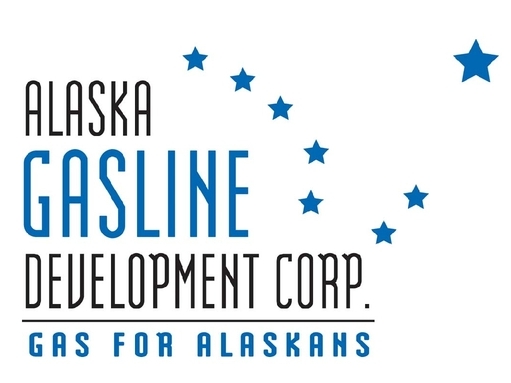Alaska gasline agency opens Tokyo office, replaces state’s representative in Japan

The state gasline agency has opened an office in Tokyo and hired a former employee of the giant Mitsubishi Corp. who got to know Bill Walker before he became Alaska’s governor, state officials said Thursday.
Masatoshi “Nick” Shiratori is replacing the state’s longtime representative in Japan, Kojira Abe, who worked on trade issues involving Alaska seafood and other commodities. After 36 years in that role, Abe retired at the end of the year, and the state’s representative in Japan now has a new office location, officials said.
Shiratori will focus on marketing the Alaska LNG project but will work on other trade issues, including mineral resources. He worked on natural gas issues for Mitsubishi.
The gasline agency and Gov. Bill Walker have made trips to Japan and other Asian countries over the past year to try to secure commitments from potential gas buyers to attract investors and financing for the costly project.
The state’s former partners in the five-year-old effort — ExxonMobil, BP and ConocoPhillips — withdrew in December amid concerns that the project would be a poor investment for them, in part because many LNG projects are coming on line around the world.
Since July, the gasline agency has publicly discussed efforts to open a marketing office in Houston, Texas, a process that is still underway. Plans there have called for a small staff and office space for meetings with potential gas buyers in a city known as America’s energy center.
The agency had not publicly announced plans for the new office in Tokyo.
The opening was noted in an official introduction letter signed by the governor and Keith Meyer, head of the Alaska Gasline Development Corp. The Jan. 12 letter notified Japanese companies and officials of the new office and Shiratori’s role.
“We look forward to continuing a long relationship between Alaska and Japan in all areas of trade, and particularly in the development of Alaska’s integrated LNG and pipeline project,” said the letter, marked with the state seal and AGDC’s logo.
A copy was sent to reporters by several sources Wednesday night. Officials with the governor’s office and the gasline agency said they had not announced the office because it was a small change, with the gasline agency essentially taking over a contract that had been under the governor’s office.
“This is new only in the sense it’s AGDC’s office, but the state has had representation in Japan for 36 years,” Jang said.
The office is small and Shiratori is the only employee there. “It’s pretty modest,” said Rosetta Alcantra, the agency’s vice president of communication.
Shiratori is employed under an 11-month contract with the AGDC, not to exceed $130,000. The contract ends June 30.
The contract became effective in August, with Shiratori helping facilitate meetings, such as when the governor traveled to Tokyo in November to speak at the fifth annual LNG Producer-Consumer Conference. With the state’s Japan representative and office location changing — Abe used a different location — state officials waited to issue the letter of introduction until after Abe retired Dec. 31.
AGDC is paying about $5,300 a month for the office in downtown Tokyo, with a one-year lease expiring in January 2018, Alcantra said. The contract includes a $25,000 allowance, if needed, for materials and supplies. The agency is trying to keep expenses low, including by limiting travel, she said.
Alcantra said it’s important that entities in Japan have a local official they can meet with to discuss the LNG project.
Shiratori retired from Mitsubishi last spring, officials said.
His LinkedIn page, translated from Japanese, shows that he was Mitsubishi’s vice president of the “Alaska project” from 2006 to 2011. The page says the project involved a long-term LNG contract for Japan.
Walker has said that in 2008 Mitsubishi approached him in an effort to buy natural gas from Alaska and possibly build an Alaska gas line and LNG project.
At the time, Walker was the project manager for the Alaska Gasline Port Authority, a municipal-led effort pursuing an LNG project that sought to produce North Slope gas reserves from a pipeline running from the North Slope to Valdez and sell the gas in Asia.
Walker said ExxonMobil, leaseholder of the largest gas reserves in Alaska, rejected an offer from the port authority, Mitsubishi and Sempra Energy that aimed to develop the long-stranded natural gas reserves on the North Slope. That soon ended Mitsubishi’s effort with the consortium, and that project, like many other gasline proposals in Alaska, was never built.
Shiratori got to know Walker at that time, Jang said.
Emails sent to Shiratori, seeking comment, were not returned.
Shelley James, associate director for the Alaska Office of International Trade, said she’s known Shiratori for years. She said he will provide valuable experience as the state seeks buyers and investors for the project.
“He brings significant LNG experience to this position,” James said.